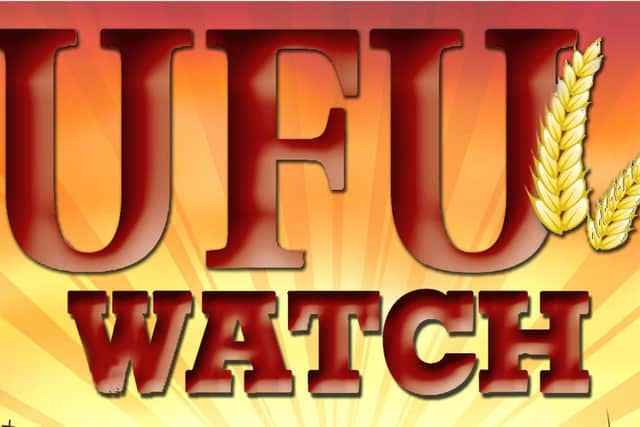FBIS-C tier one now open for applications
and live on Freeview channel 276
Before making an application to the scheme, farmers should consider carefully if FBIS-C tier one is the most appropriate way to meet their farm business requirements, particularly given the increasing cost pressures on local farming families this winter.
Tier one is designed to support farm sustainability and is for projects costing £5,000 - £30,000 of eligible costs based on reference pricing. The reference prices for items have been revised since the previous tranches but given the levels of inflation and currency fluctuations, they may now not reflect the current market situation. The grant rate is up to 40 percent of eligible costs with the maximum grant available for a farm business set at £12,000 over tranche three and four. Applicants who were successful in tranche one and/or two, are eligible to reapply for the full grant in tranche four minus any amount they may have received in tranche three.
Advertisement
Advertisement
Low emission slurry spreading equipment (LESSE) is again featured in the scheme, however, in this tranche, some farmers will find themselves ineligible to apply for this. Scheme rules prevent DAERA from funding anything that is a legal requirement and as it is now a legal requirement for certain farmers to use LESSE, those businesses will be unable to apply for these items in this scheme.


Past experiences would show that many farmers leave the submission of grant applications to the last minute with the majority often coming in on the last day.
Due to the requirement to obtain a letter from the bank and to complete the ‘making it safer’ online assessment, this isn’t a sensible approach as potential applicants need to give themselves time to get these elements organised, uploaded and sent in.
There is a template for the bank letter available online. However, some banks may use an alternative format and details on what is required in this can be found on the DAERA website. While some banks will issue these letters over the counter, others may take longer. Therefore, if applying for the scheme, farmers should approach their banks as soon as possible to ensure they have the letter available to them in time for the deadline.
Advertisement
Advertisement
If the scheme is over-subscribed, eligible applications will be scored against the criteria; item theme band (46 marks), value for money (39 marks), age of applicant (five marks), educational attainment (five marks), new applicant (five marks).
The UFU is encouraging farmers to think carefully about the items they require before applying to the scheme and to consider the ‘banding’ of items. Farmers should only apply for items that they intend to purchase and that they really need.
As a result of Ulster Farmers’ Union (UFU) lobbying, there are some additional items in this tranche and all the items have been given a new code and prices adjusted. Therefore, farmers must ensure that they are using the list of items published for tranche four of the scheme. Each item listed in the scheme has been assessed against core themes for the Rural Development Programme and banded accordingly with band one being the highest. These bands will be used as a selection criterion, and it is important to note that the lowest band applied for will determine the mark to be awarded against this criterion.
There is lots of useful information and guidance on the DAERA website and the UFU would advise members to read and consider it all carefully before submitting applications for this scheme.